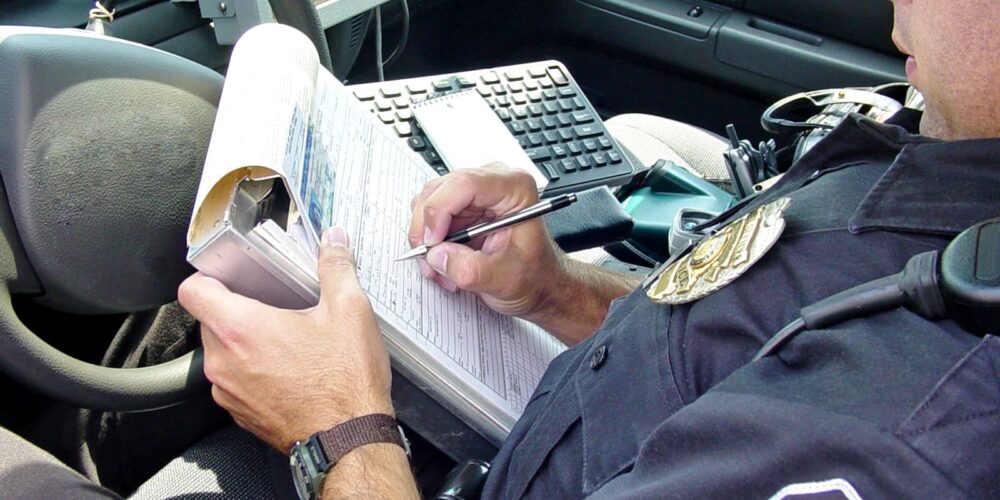As a truck driver, understanding the rules of the road is essential for maintaining a safe driving environment and protecting your career. One critical aspect of driving laws is the concept of moving violations. In this blog post, we’ll explore what a moving violation is, the common types that truck drivers encounter, and the potential repercussions of such violations.
Defining Moving Violations
A moving violation refers to any traffic offense committed by a driver while the vehicle is in motion. This can include a wide range of infractions that violate traffic laws, regulations or safety guidelines. Moving violations are typically more serious than non-moving violations (such as parking tickets) because they often indicate unsafe driving behavior that can endanger the driver, passengers and other road users.
Related: Understanding the Types of Traffic Violations: What Truck Drivers Need to Know
Common Types of Moving Violations for Truck Drivers
Speeding: Exceeding the posted speed limit is one of the most common moving violations. Truck drivers must be especially cautious, as speed limits are often lower for commercial vehicles, and exceeding them can lead to significant penalties.
Running a Red Light or Stop Sign: Failing to stop at a red light or neglecting to yield at a stop sign can lead to serious accidents and is considered a moving violation.
Improper Lane Changes: Changing lanes without signaling or cutting off other vehicles can result in a ticket. Truck drivers should always signal and check their blind spots before making lane changes.
Driving Under the Influence: Operating a vehicle while impaired by alcohol or drugs is a severe moving violation that can lead to criminal charges and the loss of a commercial driver’s license (CDL).
Distracted Driving: Engaging in activities that divert attention from driving, such as using a mobile phone or eating, can lead to traffic tickets. The risks associated with distracted driving are particularly pronounced for truck drivers due to the size and weight of their vehicles.
Following Too Closely: Tailgating other vehicles is dangerous and can result in a citation. Truck drivers must maintain a safe following distance to allow adequate stopping time.
Failure to Obey Traffic Signals: Ignoring yield signs, flashing lights or other traffic control devices can lead to violations that compromise the safety of all road users.
Consequences of Moving Violations
For truck drivers, the consequences of receiving a moving violation can be significant:
- Points on Driving Record: Moving violations typically add points to your driving record. Accumulating too many points can lead to license suspension, especially for CDL holders.
- Increased Insurance Premiums: Traffic violations can lead to higher insurance rates, impacting your overall income and expenses.
- Job Security: Many trucking companies have strict policies regarding driving records. Accumulating moving violations can jeopardize your current employment and future job opportunities.
Understanding what constitutes a moving violation is crucial for truck drivers. By being aware of the common types of violations and their potential consequences, you can take proactive steps to maintain a clean driving record and ensure your safety on the road. Responsible driving protects your career and contributes to safer highways for everyone.
If you get a ticket, TVC Pro-Driver members have $0 out-of-pocket access* to more than 10,000 top-rated attorneys in all 50 states and Canada. Our network of provider attorneys has worked more than 1 million citations for TVC Pro-Driver members. Our attorneys are experienced with CDL cases, and many of them have been part of our network for 35 years. Also, attorneys handle all cases in the court of original jurisdiction. Not a member? Sign up today.
*Exclusions and pre-existing ticket fees may apply. See membership agreement for specifics.








